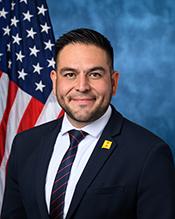0
0
0
TRUST in Congress Act
2/1/2024, 8:30 AM
Summary of Bill HR 345
The TRUST in Congress Act, also known as Bill 118 hr 345, is a piece of legislation introduced in the US Congress aimed at increasing transparency and accountability within the legislative branch. The main goal of the bill is to restore trust in Congress by addressing issues related to conflicts of interest, lobbying, and ethics.
One key provision of the TRUST in Congress Act is the establishment of a new Office of Congressional Ethics, which would be responsible for investigating allegations of misconduct by members of Congress. This office would operate independently from the House and Senate ethics committees, providing an additional layer of oversight.
Additionally, the bill includes measures to increase transparency in lobbying activities. Lobbyists would be required to disclose more information about their interactions with members of Congress, including details about meetings, gifts, and campaign contributions. This increased transparency is intended to reduce the influence of special interests on legislative decision-making. The TRUST in Congress Act also includes provisions to address conflicts of interest among members of Congress. Lawmakers would be required to disclose any financial interests that could potentially influence their decision-making, and would be prohibited from using their positions for personal gain. Overall, the TRUST in Congress Act seeks to promote integrity and accountability within the legislative branch, with the ultimate goal of restoring public trust in Congress. The bill is currently being debated in Congress, with supporters arguing that it is necessary to address the perception of corruption and self-dealing among lawmakers.
One key provision of the TRUST in Congress Act is the establishment of a new Office of Congressional Ethics, which would be responsible for investigating allegations of misconduct by members of Congress. This office would operate independently from the House and Senate ethics committees, providing an additional layer of oversight.
Additionally, the bill includes measures to increase transparency in lobbying activities. Lobbyists would be required to disclose more information about their interactions with members of Congress, including details about meetings, gifts, and campaign contributions. This increased transparency is intended to reduce the influence of special interests on legislative decision-making. The TRUST in Congress Act also includes provisions to address conflicts of interest among members of Congress. Lawmakers would be required to disclose any financial interests that could potentially influence their decision-making, and would be prohibited from using their positions for personal gain. Overall, the TRUST in Congress Act seeks to promote integrity and accountability within the legislative branch, with the ultimate goal of restoring public trust in Congress. The bill is currently being debated in Congress, with supporters arguing that it is necessary to address the perception of corruption and self-dealing among lawmakers.
Congressional Summary of HR 345
Transparent Representation Upholding Service and Trust in Congress Act or the TRUST in Congress Act
This bill requires a Member of Congress, as well as any spouse or dependent child of a Member, to place specified investments into a qualified blind trust (i.e., an arrangement in which certain financial holdings are placed in someone else's control to avoid a possible conflict of interest) until 180 days after the end of their tenure as a Member of Congress.
Read the Full Bill
Current Status of Bill HR 345
Bill HR 345 is currently in the status of Bill Introduced since January 12, 2023. Bill HR 345 was introduced during Congress 118 and was introduced to the House on January 12, 2023. Bill HR 345's most recent activity was Referred to the House Committee on House Administration. as of January 12, 2023
Bipartisan Support of Bill HR 345
Total Number of Sponsors
1Democrat Sponsors
1Republican Sponsors
0Unaffiliated Sponsors
0Total Number of Cosponsors
138Democrat Cosponsors
108Republican Cosponsors
30Unaffiliated Cosponsors
0Policy Area and Potential Impact of Bill HR 345
Primary Policy Focus
CongressPotential Impact Areas
- Commodities markets
- Family relationships
- Financial services and investments
- Government ethics and transparency, public corruption
- Government information and archives
- Members of Congress
- Securities
Alternate Title(s) of Bill HR 345
TRUST in Congress Act
TRUST in Congress Act
Transparent Representation Upholding Service and Trust in Congress Act
To require Members of Congress and their spouses and dependent children to place certain assets into blind trusts, and for other purposes.
Comments
Sponsors and Cosponsors of HR 345
Latest Bills
Dismissing the election contest relating to the office of Representative from the Twenty-eighth Congressional District of Texas.
Bill HRES 309December 12, 2025
Dismissing the election contest relating to the office of Representative from the Fourteenth Congressional District of Florida.
Bill HRES 308December 12, 2025
Dismissing the election contest relating to the office of Representative from the Thirtieth Congressional District of Texas.
Bill HRES 311December 12, 2025
Dismissing the election contest relating to the office of Representative from the Fourteenth Congressional District of Florida.
Bill HRES 312December 12, 2025
Dismissing the election contest relating to the office of Representative from the at-large Congressional District of Alaska.
Bill HRES 310December 12, 2025
Snow Water Supply Forecasting Reauthorization Act of 2025
Bill HR 3857December 12, 2025
ARCA Act of 2025
Bill S 1591December 12, 2025
Ensuring VetSuccess On Campus Act of 2025
Bill S 610December 12, 2025
Halting Ownership and Non-Ethical Stock Transactions (HONEST) Act
Bill S 1498December 12, 2025
Electric Supply Chain Act
Bill HR 3638December 12, 2025





